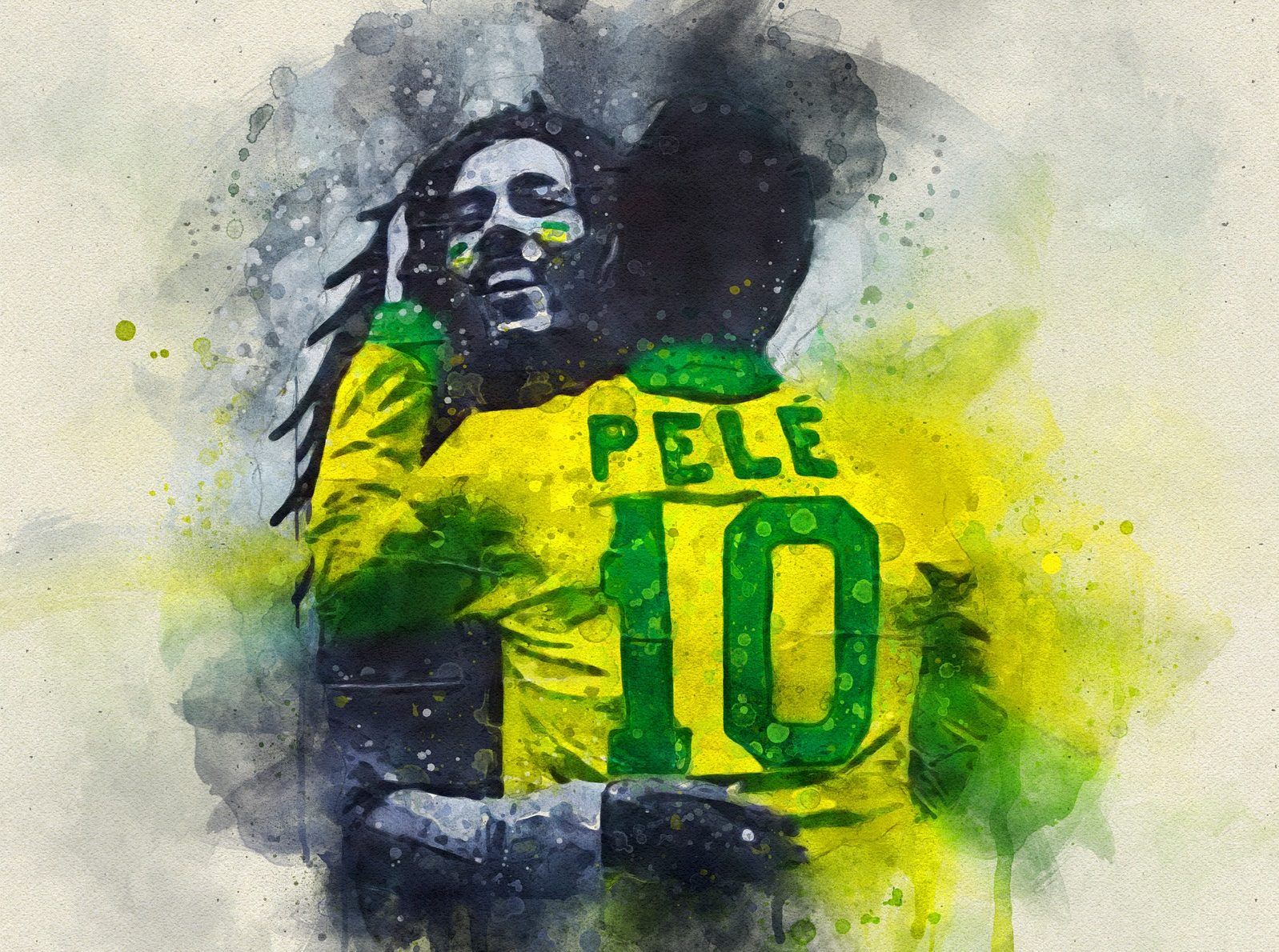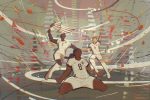On December 29, 2022, Brazilian soccer icon Edson Arantes do Nascimento, better known as Pelé, died. Although news of his declining health and even premature rumors of his passing had been spreading around the internet for weeks, his death, which came right before the new year, still came as a shock to soccer fans.
Pelé defined soccer in the ’50s. Before Ronaldo and Messi, the debate surrounding who was the greatest to ever play the beautiful game lay solely between Diego Maradona and Pelé. Pelé usually came out on top.
The Brazilian star shattered nearly every goal-scoring record of the time and, to this day, continues to hold onto some of these records. At just 17, he became the youngest player to be called to play for his national team in the World Cup. In the same tournament, he became the youngest player to score in the World Cup, the youngest player to score a hat-trick and the youngest player to score in a World Cup Final.
At 17 years old, Pelé lifted the World Cup trophy for Brazil after scoring two goals during the final and defeating the host nation, Sweden. But Pelé’s career was not just about his early playing days. He remained prolific throughout his career and helped Brazil win five World Cups, the highest number of wins for any one country in the history of the tournament. To put this feat into perspective, Germany, a global soccer powerhouse, is just behind it with a total of four World Cup wins.
Pelé replicated his brilliant national play worldwide. He became soccer’s first international superstar and propelled the game to parts of the world that historically had little interest in the sport, especially the United States.
In 1975, Pelé arrived in the U.S. to play for the New York Cosmos. The then 34-year-old Pelé was well past his prime at this point and was only looking to make some extra retirement money before the end of his career. But his star power brought millions of new eyes to the sport, bringing in unheard-of viewership numbers for American soccer and breaking attendance records during his time with the club.
Professional soccer in the United States is much less competitive than in Europe or South America, but the salaries for stars are sometimes even higher. Pelé wisely took advantage of these two facts, and soccer stars to this day have followed in his footsteps. It has become a trend for the world’s best players to spend the final years of their careers in the United States. Some stars who followed suit are Thierry Henry, Gareth Bale and Bastian Schweinsteiger. Rumors about Ronaldo and Messi moving to the MLS continue to swirl all due to Pelé’s impact on the sport.
Pelé’s influence on Brazilians should not be understated. Generations of young stars try to replicate his exciting play style. Dubbed “the King” worldwide, Brazilian people seem to really believe in this title. His fast-fluid style was unlike anything soccer fans had seen up to that point, and his influence can be seen in modern gameplay, especially through the Brazilian National team and Brazilian stars like Neymar Jr. and Ronaldinho.
But Pelé’s status as a king on the field continued to show off the pitch. He used his massive platform for humanitarian efforts long after his retirement. As an ambassador for UNICEF, he advocated for global development and environmental protection reform. But his most legendary feat came in 1969 when the Nigerian Civil War held a ceasefire just so that Pelé could play for his team Santos. This war-ending power exemplified the power of “the King.”
Still, Pelé’s status as a Black star in the ’50s undoubtedly came with its struggles. He is famously recorded saying that he would “never play” if he stopped every time he heard monkey chants. In continuing to play through the flagrant racism levied against him, Pelé stood up for Black people around the world. But Pelé also used his platform to address issues that did not affect him directly.
Athletes today avidly follow the footsteps of early stars like Pelé. What set him apart was his willingness to continue his legacy beyond his competitive career to help spark change in the world. Nowadays, athletes all over the world seek to use their platforms for positive social change.
Professional athletes are in a unique position to reach out to communities that normally would not know about certain humanitarian efforts. People from all walks of life tune in to watch their favorite teams and players square off against each other. Because of this viewership, athlete protests can have a powerful positive impact on the overall movement.
Although there is no obligation for athletes to stand against injustice, their predecessors, like Pelé, have inspired them to do so. Pelé’s impact has extended beyond the sporting world and created a desire for other professional athletes to do more than just play their respective sports.
While the motivation for current-day athletes to be active in social and political spheres exists because their predecessors lit the way, there was little external incentive for Pelé during his time. He could have simply been happy with the state of affairs and taken his riches as the greatest soccer player. But Pelé was not content and risked his affluence to further the causes he believed in.
Athletes occupy large public platforms, which makes them the perfect vessels to convey information about reform. Pelé foresaw this fact like no other and wasted no time to make a change. For this reason, he truly deserves the title of King.

















